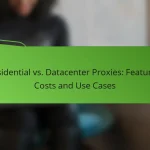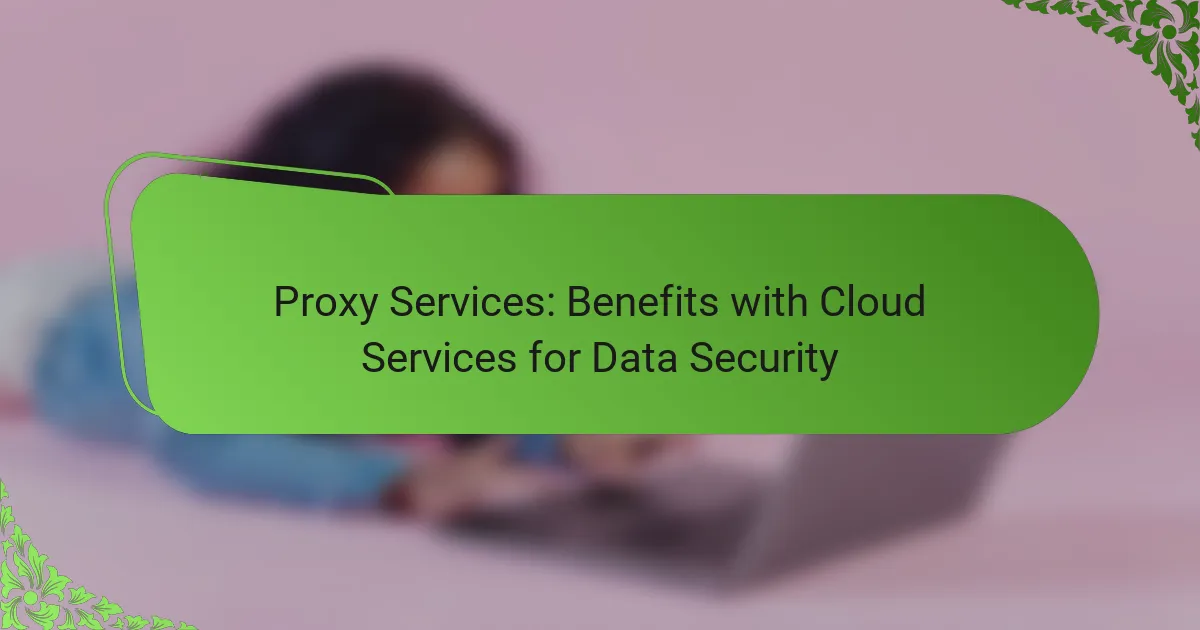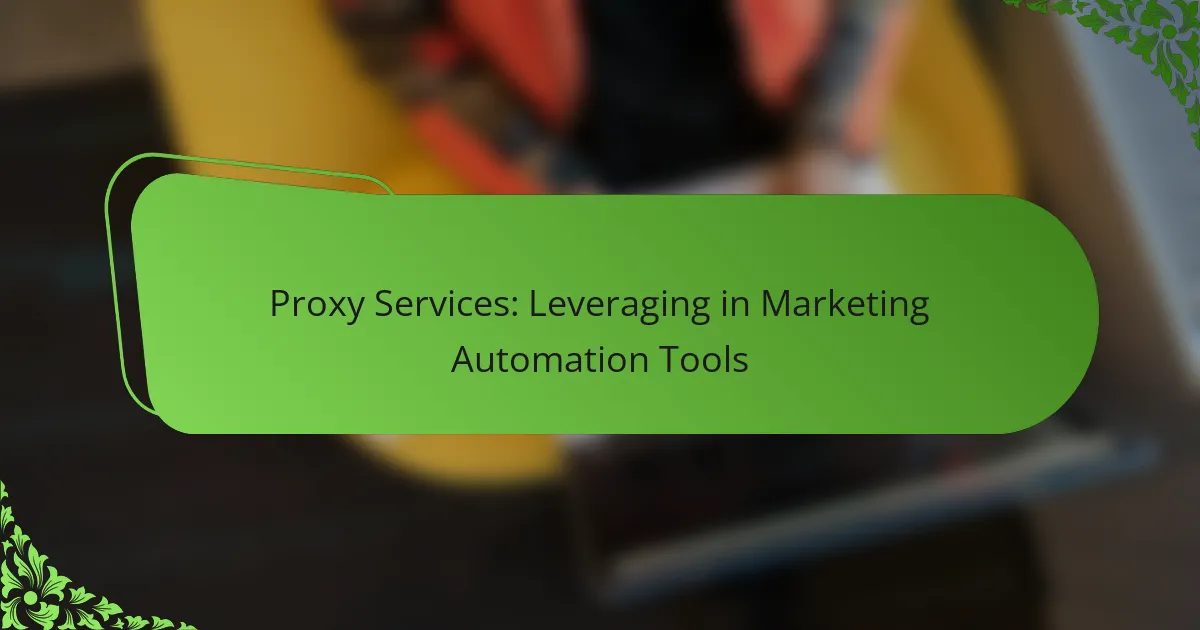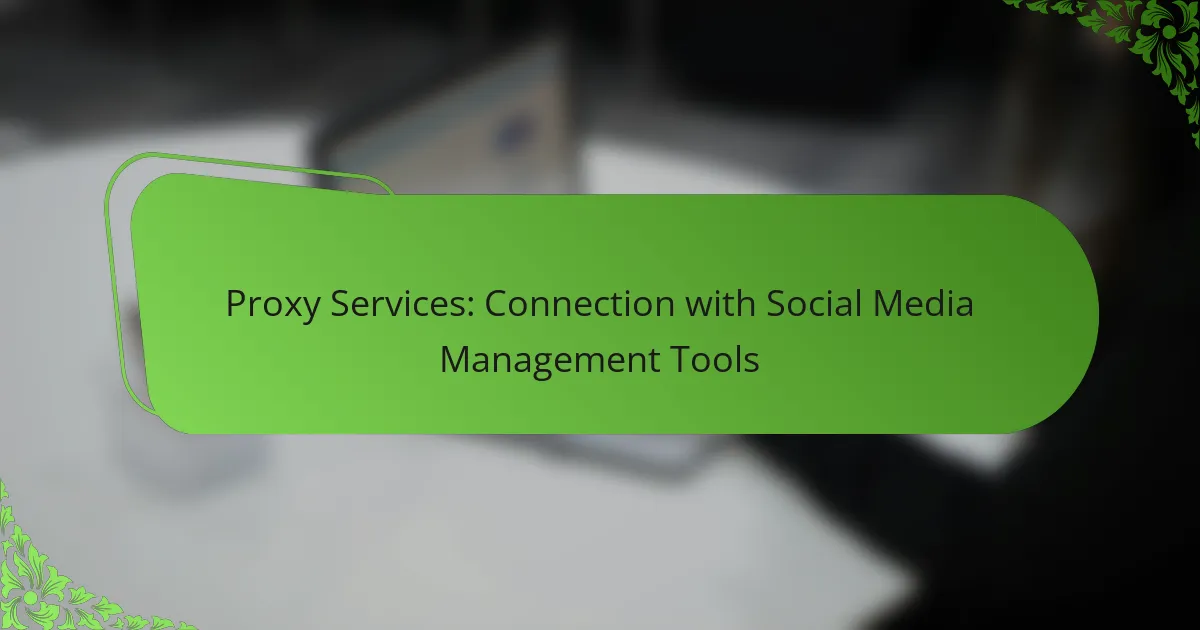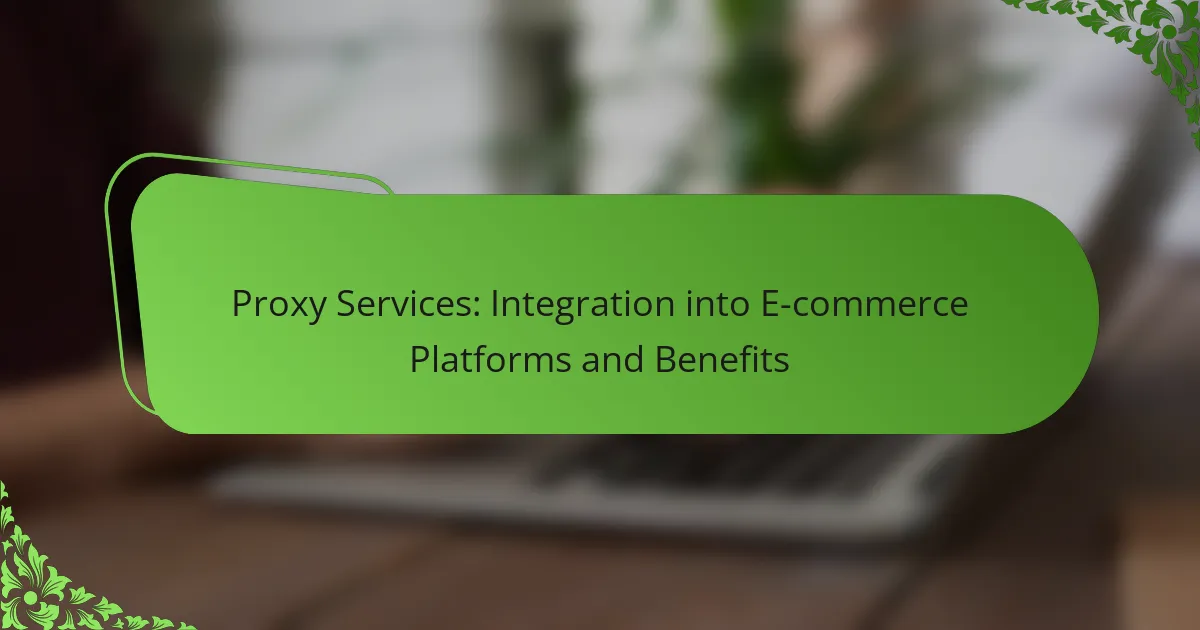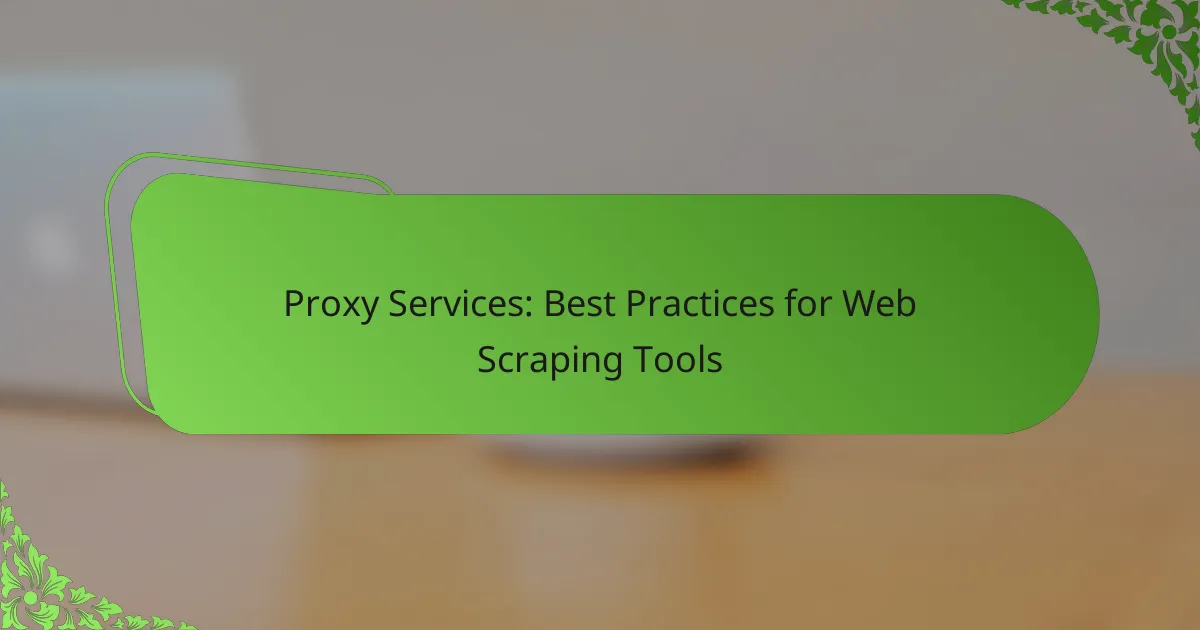Integrating proxy services with cloud solutions significantly boosts data security by adding an extra layer of protection. This synergy not only safeguards sensitive information and ensures user anonymity but also enhances performance when accessing online resources. By acting as intermediaries, proxy services facilitate secure data transmission and effective access control, making them essential for cloud users seeking improved privacy and security.
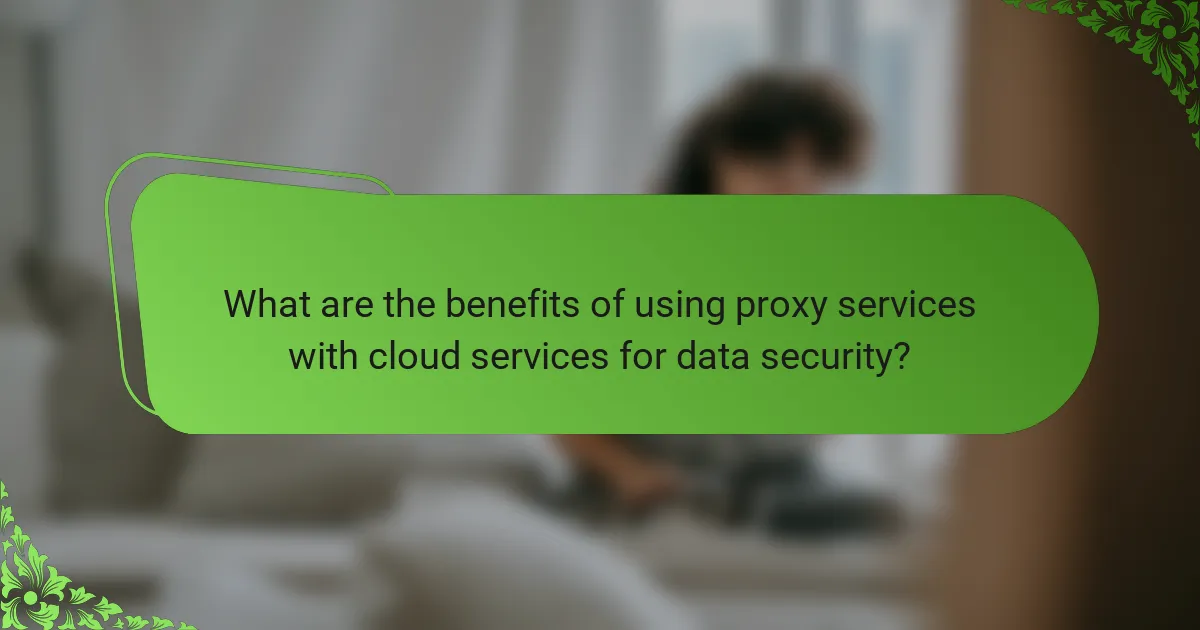
What are the benefits of using proxy services with cloud services for data security?
Using proxy services alongside cloud services significantly enhances data security by providing an additional layer of protection. This combination helps safeguard sensitive information, ensures anonymity, and improves overall performance when accessing online resources.
Enhanced anonymity
Proxy services enhance anonymity by masking the user’s IP address, making it difficult for third parties to track online activities. This is particularly beneficial for businesses that handle sensitive data, as it reduces the risk of exposure to cyber threats.
By routing traffic through a proxy server, users can access the internet without revealing their true location. This added layer of privacy is crucial for maintaining confidentiality in communications and transactions.
Improved data encryption
Integrating proxy services with cloud solutions often leads to improved data encryption. Proxies can encrypt data transmitted between the user and the cloud, ensuring that sensitive information remains secure from interception.
Businesses should consider using proxies that support strong encryption protocols, such as SSL or TLS, to protect data in transit. This is especially important when dealing with financial transactions or personal information.
Access to geo-restricted content
Proxy services enable users to bypass geo-restrictions, allowing access to content that may be blocked in certain regions. This is particularly useful for organizations that need to access global resources or services that are not available locally.
By connecting through a proxy located in a different country, users can easily access websites and services as if they were physically present in that location, enhancing their ability to gather information and utilize cloud services effectively.
Reduced risk of data breaches
Utilizing proxy services can significantly reduce the risk of data breaches by acting as a barrier between the user and potential threats. Proxies can filter out malicious traffic and block access to harmful sites, protecting sensitive data from exposure.
Organizations should implement proxies with robust security features, such as intrusion detection systems, to further mitigate risks associated with data breaches. Regularly updating these systems is essential for maintaining security standards.
Better performance and speed
Proxy services can improve performance and speed by caching frequently accessed data and optimizing bandwidth usage. This results in faster load times for applications and websites, enhancing the overall user experience.
For businesses that rely on cloud services, using a proxy can lead to significant improvements in operational efficiency. It is advisable to choose proxies that are geographically close to the cloud servers to minimize latency and maximize speed.
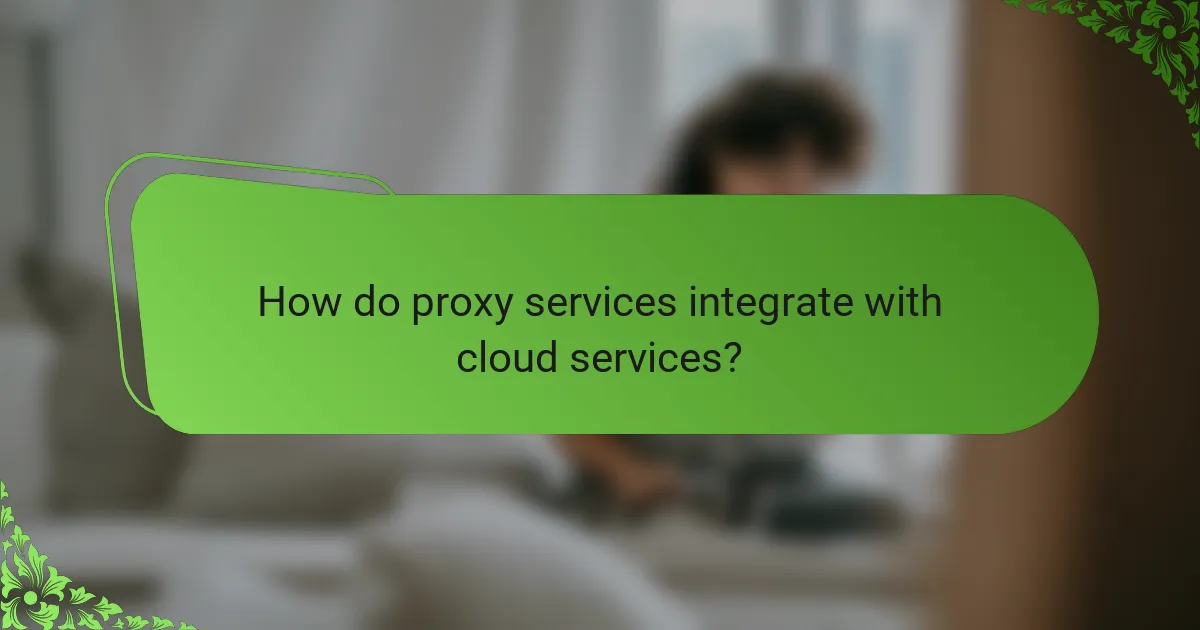
How do proxy services integrate with cloud services?
Proxy services enhance cloud services by acting as intermediaries that facilitate secure data transmission and access control. They help protect sensitive information and improve performance by managing traffic between users and cloud applications.
API integrations
API integrations allow proxy services to communicate seamlessly with cloud applications, enabling secure data exchange and enhanced functionality. By utilizing APIs, businesses can automate processes and ensure that data flows efficiently between systems without compromising security.
When implementing API integrations, consider using well-documented APIs that support authentication and encryption. This ensures that data remains secure during transmission and minimizes the risk of unauthorized access.
Virtual Private Network (VPN) connections
VPN connections provide a secure tunnel for data traveling between users and cloud services, enhancing privacy and security. By routing traffic through a proxy server, organizations can mask their IP addresses and encrypt data, making it difficult for attackers to intercept sensitive information.
To maximize the benefits of VPN connections, choose a reputable VPN provider that offers strong encryption protocols and a no-logs policy. This helps maintain user privacy and ensures compliance with data protection regulations.
Load balancing capabilities
Load balancing capabilities in proxy services distribute incoming traffic across multiple servers, improving performance and reliability for cloud applications. This ensures that no single server becomes overwhelmed, which can lead to slow response times or downtime.
When selecting a proxy service with load balancing features, look for options that offer automatic scaling and health checks. These features help maintain optimal performance and ensure that users have a consistent experience, even during peak usage times.
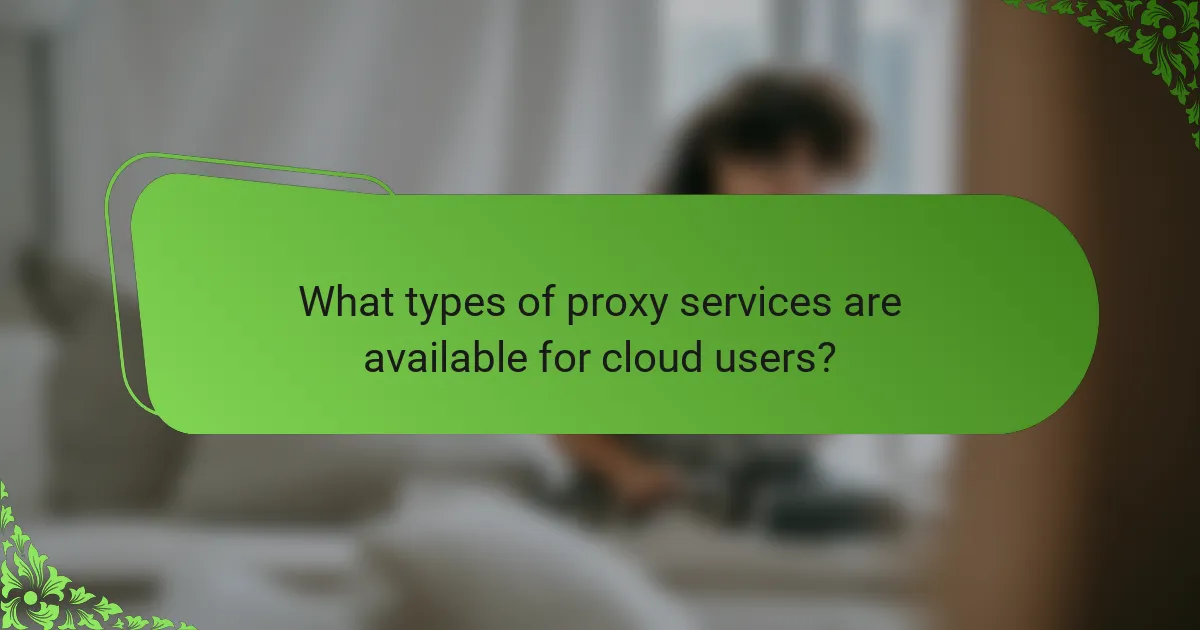
What types of proxy services are available for cloud users?
Cloud users can choose from various proxy services, each offering unique benefits for data security and privacy. The main types include residential proxies, datacenter proxies, SOCKS proxies, and HTTP/HTTPS proxies, each serving different use cases and requirements.
Residential proxies
Residential proxies use IP addresses assigned by Internet Service Providers (ISPs) to real devices, making them appear as regular users. This type of proxy is ideal for tasks requiring high anonymity, such as web scraping and accessing geo-restricted content.
When using residential proxies, consider their higher cost compared to other types due to the legitimate IP addresses. They are less likely to be blocked by websites, providing a more seamless browsing experience.
Datacenter proxies
Datacenter proxies are generated from data centers and do not originate from ISPs, making them faster and more affordable. These proxies are suitable for tasks that require speed, such as automated testing or bulk data collection.
However, datacenter proxies can be more easily detected and blocked by websites, especially if used for scraping. It’s essential to rotate IPs frequently to mitigate this risk and maintain access.
SOCKS proxies
SOCKS proxies are versatile and can handle any type of traffic, including HTTP, HTTPS, and FTP. They are particularly useful for applications requiring a wide range of protocols, such as torrenting or gaming.
While SOCKS proxies offer flexibility, they may require additional configuration compared to other types. Users should ensure their applications support SOCKS to maximize effectiveness.
HTTP/HTTPS proxies
HTTP and HTTPS proxies are specifically designed for web traffic, making them suitable for browsing and web scraping. HTTPS proxies encrypt data, providing an additional layer of security for sensitive transactions.
These proxies are generally easy to set up and use, but they may not support non-web protocols. For users focused on web-related tasks, HTTP/HTTPS proxies are often the best choice due to their efficiency and security features.
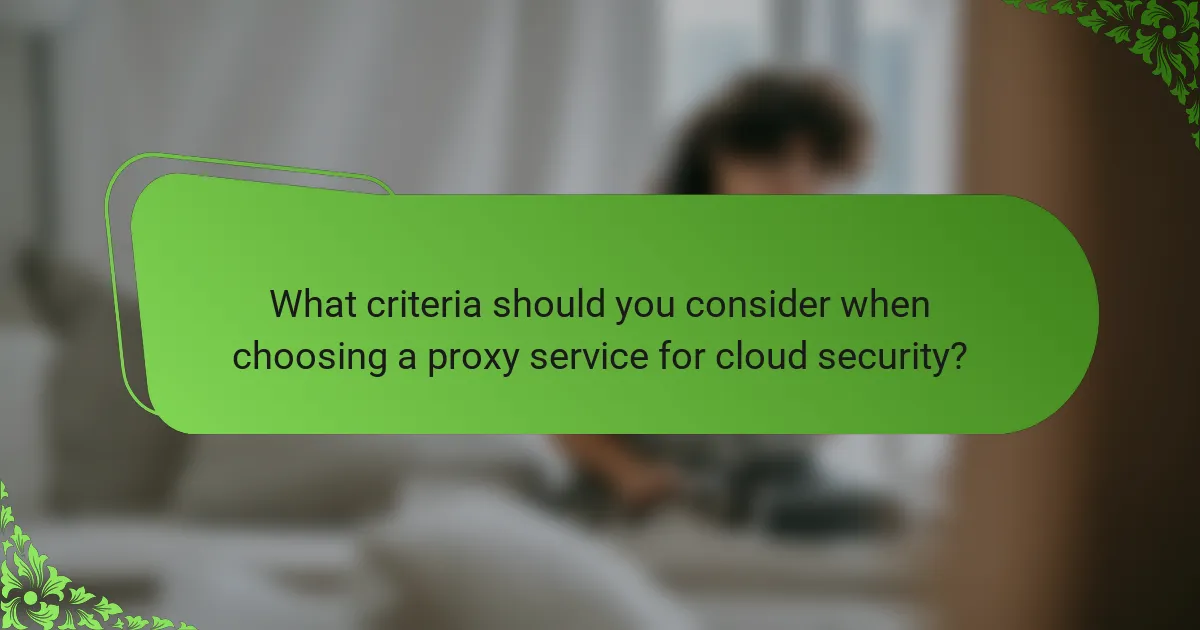
What criteria should you consider when choosing a proxy service for cloud security?
When selecting a proxy service for cloud security, consider factors like bandwidth limits, geolocation options, service reliability, and pricing models. These criteria will help ensure that the proxy service meets your specific security needs and performance expectations.
Bandwidth limits
Bandwidth limits dictate how much data can be transmitted through the proxy service within a given timeframe. Look for services that offer sufficient bandwidth to handle your typical data loads without throttling, especially if you anticipate high traffic or large file transfers.
Many providers offer plans with varying bandwidth limits, so assess your usage patterns to choose a plan that aligns with your needs. A good rule of thumb is to opt for a service that provides at least double your expected usage to accommodate spikes in demand.
Geolocation options
Geolocation options refer to the ability of the proxy service to route traffic through servers located in specific countries or regions. This feature is crucial for accessing region-restricted content or complying with local regulations regarding data privacy.
Choose a proxy service that offers a diverse range of geolocation options to enhance your flexibility. For example, if your business operates in multiple countries, having access to servers in those regions can improve performance and compliance.
Service reliability
Service reliability is essential for maintaining uninterrupted access to your cloud services. Look for proxy providers that guarantee high uptime percentages, ideally above 99.9%, to minimize the risk of service disruptions.
Additionally, consider the provider’s reputation for customer support and incident response. A reliable service should have a robust support system in place to address any issues promptly, ensuring your operations remain smooth.
Pricing models
Pricing models for proxy services can vary significantly, including pay-as-you-go, subscription-based, or tiered pricing structures. Evaluate these options based on your budget and usage patterns to find the most cost-effective solution.
Be cautious of hidden fees, such as charges for exceeding bandwidth limits or additional costs for premium features. A transparent pricing model will help you avoid unexpected expenses and make budgeting easier.
